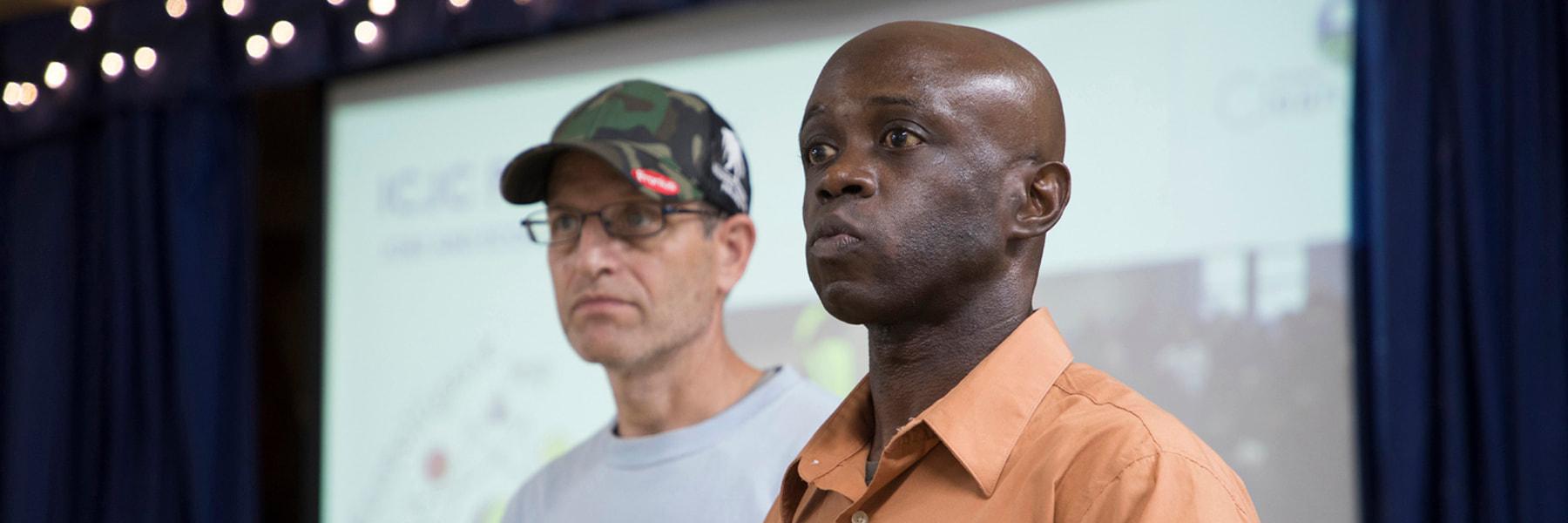|
The Clean Energy Jobs Act (CEJA) aims to dramatically increase investment in clean energy across Illinois, driving equitable economic development, fossil fuel divestment, and energy efficiency. CEJA is not the only energy legislation proposed in the Illinois General Assembly this fall, but it is unique in building upon a “grassroots movement of ideas from everyday people across Illinois." Since 2018, the Illinois Clean Jobs Coalition. has organized nearly 100 community-based conversations through its Listen. Lead. Share. (LLS) campaign. These conversations are designed to raise awareness about CEJA and gather additional feedback from residents on how to improve the bill.
ICA joined the campaign this year, committing to organize three LLS events in Chicago ahead of the October veto session. In late July, Program Manager Caitlin Sarro facilitated a conversation with Uptown residents on the implications CEJA might have for the neighborhood. For the next conversation, ICA partnered with Alvyn Walker of Windsor Park Lutheran Church in South Shore to organize an event after the regular Sunday service on September 15th. “The first pillar, promoting jobs and economic development, is really key to the South Shore community,” Alvyn said. “We’re looking for ways to bring accessible jobs and job training opportunities to the area so people don’t have to leave just to find work.” Tim Heppner, a resident of the South Shore adjacent neighborhood of South Chicago, has experienced firsthand the challenge of finding clean energy jobs locally. He described his early experience with solar jobs training, saying “We realized when we were done with those programs, we didn’t have a job at the end. You just went through all this training and everybody patted you on the back, you did really good, you got another certificate, and there were no jobs.” When the Future Energy Jobs Act (FEJA), the precursor to the new CEJA bill, passed in 2016, things changed. “One thing I’m really excited about with the program trainings with FEJA, and CEJA in the future, is that we do have jobs when we finish, and they are good paying jobs,” Tim said. He described his experience with Millennium Solar, pointing out the logo on his faded blue t-shirt. The program was rigorous, a 10 week commitment of four hours per day and 18 exams to pass. But half of his cohort got good-paying jobs almost immediately. Unfortunately, most of those jobs were in the suburbs. Tim now trains a rigorous program through the Chicago Urban League, which helps students earn a national certification from the North American Board of Certified Energy Practitioners (NABCEP). Of his most recent cohort of 10 students, all passed the training, received certification, landed jobs, and got promoted to supervising crews within four months. But the jobs haven’t moved any closer. CEJA could change that by creating business models to do solar installation in Chicago and neighborhoods like South Shore. The bill calls for the creation of Clean Jobs Workforce Hubs and Contractor Incubator programs with an explicit commitment to “ensuring that equity is at the core of every provision.” For Kyra Woods, an organizer with Sierra Club Chicago, equity begins with bringing conversations about future legislation to the community level. She works on Sierra Club’s Ready for 100 campaign, which she said is facilitating a “parallel conversation” in Chicago to the one LLS is making statewide. Where CEJA aims for 100% renewable energy across Illinois by 2050, Ready for 100 is pushing Chicago to go renewable faster, with goals like electrifying all City buses by 2040. Kyra said there are two approaches to moving toward renewable energy. First, reduce the amount of energy needed through energy efficiency practices, such as replacing light bulbs, turning off electronics, and insulating buildings. Second, ensure that what need remains is powered through clean, renewable sources. The power in energy efficiency is that many of its practices are accessible to residents. They are simple actions that people can implement in their homes and daily routines to save money in the long term. For Naomi Davis, founder of Blacks in Green (BIG), that’s a big deal. BIG recently opened its Green Living Room, a cafe and gathering space focused on making climate action accessible to South Side residents. “This is something that’s really practical, it’s hands-on… you can see the results of your work,” said Sharon Davis, a former teacher who entered the solar industry through a training Tim led at the Chicago Urban League. She believes more minorities and women should get involved, and thinks clean energy opportunities should be introduced in schools. “Clean energy is close to my heart, always has been. I believe in it for myself and my posterity. I want my grandchildren to have a better environment.” Comments are closed.
|
|
4750 N Sheridan Rd, Chicago, IL 60640
773 769 6363 x 335 |
Copyright 2022. The Institute of Cultural Affairs. All rights reserved.

